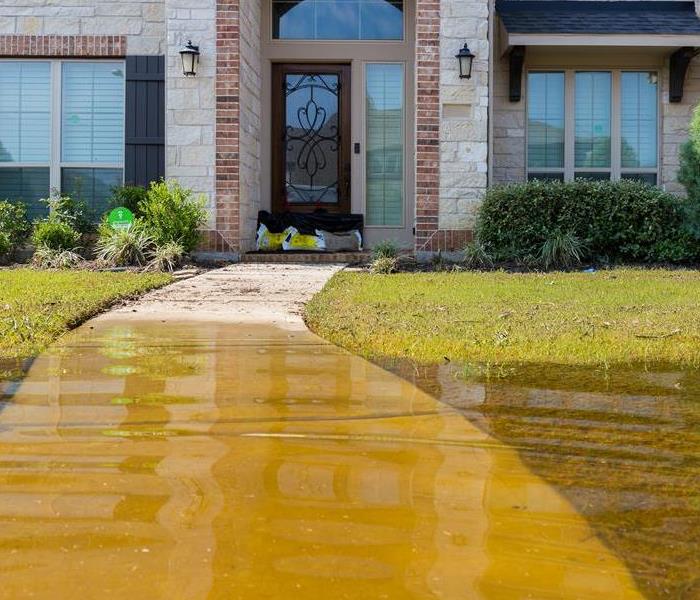Creating a Flood-Resistant Landscape: The Key Role of Landscaping in Preventing House Flooding
10/18/2023 (Permalink)
Landscaping not only enhances the aesthetic appeal of our properties but can also play a significant role in preventing house flooding. By strategically planning and designing our outdoor spaces, homeowners can mitigate the risk of flooding and water damage. In this blog, we will explore the importance of landscaping in flood prevention, offering valuable tips to protect your home from potential water-related disasters.
Proper Grading and Sloping
One of the most fundamental aspects of flood prevention is proper grading and sloping of the landscape. Ensuring that the land around your home slopes away from the foundation will direct water away from the house during heavy rainfall. This prevents pooling of water and reduces the likelihood of water seeping into the basement or crawl spaces. Professional landscapers can assess your property's terrain and make necessary adjustments to optimize grading and sloping for effective flood prevention.
Strategic Rainwater Diversion
Rainwater diversion techniques can significantly reduce the risk of flooding. By implementing strategies such as installing rain barrels, French drains, or dry wells, homeowners can redirect excess rainwater away from their homes. These methods help to capture and store rainwater for irrigation purposes or channel it into permeable areas of the landscape where the water can naturally soak into the ground. Proper rainwater diversion not only prevents flooding but also conserves water resources and promotes a sustainable landscape.
Well-Planned Drainage Systems
An effective drainage system is crucial for flood prevention. Incorporating features like gutters, downspouts, and catch basins can efficiently collect and redirect water away from the foundation. Connecting downspouts to underground drainage pipes or installing permeable pavers can further facilitate proper water dispersion. Regular maintenance of these drainage systems, including clearing debris and ensuring proper functioning, is essential for their effectiveness. Consulting with a professional landscaper or drainage expert can help homeowners design and implement a comprehensive drainage system tailored to their property's needs.
Strategic Plant Selection
Choosing the right plants for your landscape can contribute to flood prevention. Opt for plants that are suited to your soil type and climate, as they are more likely to establish deep root systems, enhancing soil absorption capacity during heavy rainfall. Additionally, incorporating plants that thrive in wet conditions, such as wetland plants or rain gardens, can help naturally absorb excess water. Native grasses and groundcovers are also effective in minimizing soil erosion and promoting water infiltration. Strategic plant selection, along with appropriate watering practices, can positively impact your landscape's ability to manage excess water and prevent flooding.
Landscaping plays a vital role in preventing house flooding and protecting your property from water-related disasters. By focusing on proper grading and sloping, rainwater diversion, well-planned drainage systems, and strategic plant selection, homeowners can enhance their landscape's ability to manage excess water effectively. Implementing these measures, with the guidance of landscape professionals, will help safeguard your home and create a resilient outdoor space.






 24/7 Emergency Service
24/7 Emergency Service
